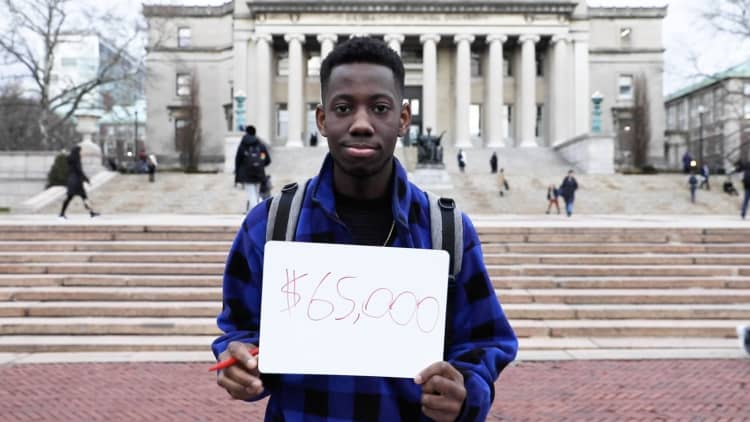On August 8, President Donald Trump signed a memorandum ordering Secretary of Education Betsy DeVos to extend student loan relief policies included in the CARES Act that were scheduled to expire on September 30th, through the end of December.
On Friday, August 21, DeVos implemented the measure, providing student loan borrowers with an additional three months of relief.
The CARES Act, passed on March 27, paused federal student loan payments and temporarily set the federal student loan interest rate to 0%.
"All borrowers with federally held student loans will have their payments automatically suspended until 2021 without penalty," reads a statement from the secretary. "In addition, the interest rate on all federally held student loans will be set to 0% through the end of the calendar year."
According to most recent figures from the Department of Education, roughly 42.6 million federal student loan borrowers collectively owe over $1.5 trillion in federal student debt.
DeVos' announcement also extended protections for borrowers with defaulted federal student loans from having their wages garnished during this time. However, the Trump Administration has faced serious critiques as well as class action lawsuits for failing to fully halt wage garnishment during the pandemic.
According to the statement, full-time workers who qualify for the Public Service Loan Forgiveness program (such as teachers and Peace Corps volunteers) will have the following three months count towards the 120 payments they are required to make before their debt is forgiven, though the Trump administration has previously attempted to eliminate the program.
Approximately 9 million borrowers who have private student loans will not get total relief under the new rule.
Trump's student borrower relief policy is less expansive than what many Congressional Democrats and Republicans had sought.
Student loan policy has become a point of contention among relief proposals. On May 15, the House of Representatives passed the HEROES Act, which would expand the pause on federal student loan repayment through September 2021 and would cancel up to $10,000 for some federal and private loan holders.
In contrast, on July 27, Senate Republicans introduced the HEALS Act which does not include significant relief for borrowers. Instead, the HEALS Act eliminates many student loan repayment options and allows only those with no income to defer payments.
The Trump administration says the president gets his authority for his latest memorandum under the Higher Education Act, a logic some legal experts say could create precedence for broader unilateral student loan forgiveness in the future.
Don't miss:



